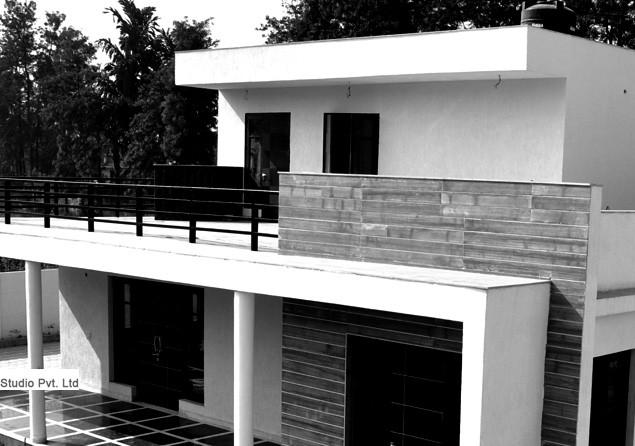A leaking basement is not something new to homeowners. This does not imply the home was not built well because, during construction, the floor is ensured to be waterproof. However, with a combination of time and forces of nature, slab floors will develop water leaks that have spiteful consequences. If you notice water anywhere it shouldn’t be, you need to fix the problem as soon as possible. Call a water leak repair company to identify the exact issue. Depending on the signs, your floor may have sewer leaks or freshwater leaks.
Types of Sewer Problems
The sewer is designed to function on gravity; thus, pipes are installed in decline. The only time water is in the drain is when you flush the toilet or run water.
Symptoms of sewer blockage:
- Overflows
If water overflows when you flush the toilet or run water, this might indicate a clog in your sewer system. This is because the sewer is designed to run on gravity. Thus a blockage in your sewer system will cause the water back up and overflow out of the toilet.
- Slow Drains
Is your sink, shower, or tub slow to drain? If yes, this is an indication that you have a partial blockage. If not addressed, this results in a full blockage.
Symptoms of sewer leaks
Presence of cracks in walls and foundation
If the sewer pipe is broken, whenever you run water, some will escape into the soil and under the foundation. Water soaks into the ground like a sponge; thus, the expanding soil causes the concrete floor to push up. Sewer leaks could also show up as:
• Cracks in floor tiles
• Uneven floors
• Displaced moldings
• Cracks in interior bricks
• Wall bowing
• Separation of doors and windows
• Windows and doors not opening and closing properly
• Spaces between ceiling and walls
• Walls separating from the house
Freshwater leaks
The freshwater system is always full of water, unlike sewer lines. The following indicates you have a freshwater leak:
Higher than regular water bills
Your freshwater system leaking is the same as turning on the tap and letting the water run. This leads to high water bills because there is wastage of water.
Higher than regular electric bills
When your freshwater line is leaking, your water heater will continually use electricity to heat unused water, thus high power expenses.
Little or no hot water
A leak in the freshwater line will cause problems with getting enough hot water.
The sound of running water
A house may leak if there is a sound of running water in the house when there is no water turned on.
Standing water in the yard
When water leaks from the foundation’s concrete, it may find a path and leak to the yard.
What causes these pipes to leak?
Corrosion: Water pipes are made from metals that can corrode. Chemicals in the water cause corrosion. This may also be triggered when pipes come into contact with wires, thus creating electrolysis.
Shifting of ground: No matter how strong a house foundation is, an earthquake or weather storm will shift the soil so that the foundation will exert pressure on the pipes hence breaking them.
Abrasion: The change in temperature that causes the pipe to expand and contract makes the water pipes rattle. This makes the exterior of the pipe scrape against the slab, thus making it wear away to start leaking.
How To Detect A Foundation Leak
The following are tips that will help you find the foundation leak:
- Check home appliances
A broken home appliance will result in high utility bills. Homeowners should check for dripping taps, pipe, and toilet leaks. The excess water pooling under the concrete has severe effects on the house.
- Look for a wet carpet or floor
If there are no leaks in the faucet and pipes, it might be the plumbing system that has cracks on it. Homeowners can identify these cracks by locating wet spots on the floor or carpet. Water may enter the walls and create small pools where the leaking happens.
- Recognize mold smell
The formation of mold is a clear indicator of a foundation leak. Mold has a sour, must scent coming from dump walls and wet carpets. Mold appears when the water has gathered on the floor or inside walls for a long period.
- Check the water pressure
At times identifying a pipe leak is difficult. A pipe leak can be tested by checking the water pressure. Homeowners should inspect all taps one at a time to determine if the lack of pressure is a result of a leak. Find the leaking spot of a pipe by patting the pipe with a dry cloth after identifying the pipes with low pressure.
- Check the water heater
Water heaters that are old or overused will cause significant pipe leaks. Hot water leaks make the water heater start heating water without being programmed to do so. Homeowners should check the heater for leaks and seek repair advice from HVAC specialists.
- Search for warm spots on the floor
A leak in your foundation will cause warm spots around the floor. Homeowners should consider walking shoe-less to identify areas on the floor that are warmer than the rest. If the warm spot persists for a few days, this is an indication of a leaking hot water pipe.
- Look for foundation cracks
Foundation leaks cause wooden floors and tiles to have cracks. The cracks are a result of water pipes bursting into pieces and the water pressure hitting the slab.
- Check for efflorescence
Efflorescence occurs when minerals in water evaporate. It is characterized by the presence of white powder on the walls. This white powder indicates the place where the pipe is leaking.
- Check on perimeter leaks
Poor drainage will result in the perimeter of the house leaking. This is where the floor meets the wall. A leaking perimeter has water pools and mold.
- Check the windows
A poorly built window will let rainwater enter the house and penetrate the walls and floor.
Methods For Detecting Water Leaks
- Acoustic test
Water from a leaking pipe makes hissing noises. An acoustic ground microphone, together with a headset and meter, is used to monitor how loud the sound is to locate the leak. The acoustic test can find water leaks that are a meter deep or more depending on the type of soil and size of the pipe.
- Tracer gas detection
Tracer gas detection is used to find water leaks that cannot be heard. This test is done by emptying water from the pipes and filling it with noble gases. When the gas reaches the crack, it will start to escape and rise, thus identifying the leak with a gas detector. The gas is nontoxic hence is used in sewage and water pipes.
- Thermal imaging
Thermal imaging uses infrared cameras to locate leaks in hot water pipes. The infrared cameras discover heat energy and then convert it into a thermal duplicate. The images show how water is escaping from the hot water pipes
- Loss Analysis
Water leaking from a pipe will cause low volumes of water. The water loss is analyzed with correlation equipment to identify the leaks in the pipeline.
Reasons Water Leak Detection Is Important
- Cost of water bills
Water bills are usually high, so it’s essential to ensure the water you are paying for is not being wasted. Water leak detection makes you save money, which you will lose by paying high water bills caused by pipes leaking.
- Water safety
Water supply in the home should be safe for everyone. A leaking pipe would let in contaminants into the water supply, thus causing harm. Detecting leaks will ensure your family is enjoying safe water for drinking and other purposes
- Maximize usage
When you have water leak detection, you can achieve maximum benefit from the present water supply. This will delay further additions to the water system until when it is needed.
If you have any reason to suspect your concrete floor is leaking, you need to contact professionals such as EvansLeakDetection.com, that will take care of it and prevent future leakage.









